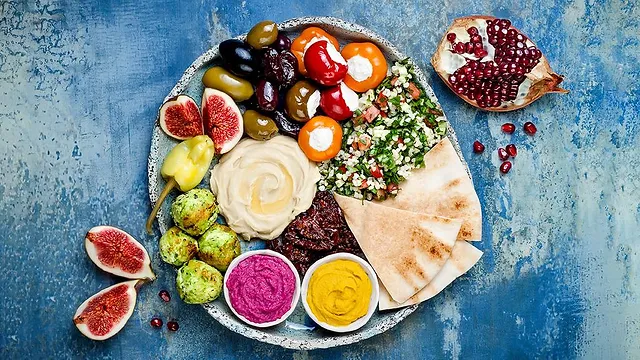Introduction: Exploring Israeli Cuisine
Israeli cuisine is a blend of different flavors and influences from Jewish, Arab, and Mediterranean cultures. It reflects the country’s diverse cultural and ethnic heritage, as well as its geographical location. Israeli cuisine is known for its fresh ingredients, bold flavors, and innovative cooking techniques. While Israeli cuisine has gained popularity around the world, many people wonder if there are any specific dietary restrictions or considerations when it comes to Israeli food.
The Influence of Jewish Dietary Laws
Jewish dietary laws, also known as Kashrut, are a set of dietary guidelines that dictate what foods can and cannot be eaten. These laws are based on the Torah, the Jewish holy book, and they are followed by many Jews around the world, including those in Israel. According to Kashrut, certain animals are considered unclean, and therefore, cannot be consumed. These include pigs, rabbits, and shellfish. Additionally, meat and dairy products cannot be eaten together, and there are strict rules about slaughtering animals for meat.
Kosher Food in Israeli Cuisine
Kosher food is food that meets the requirements of Jewish dietary laws. In Israel, many restaurants and food establishments serve kosher food, and some even have a kosher certification. Kosher food can be identified by the kosher symbol on packaging or menus. Kosher food is widely available in Israel, and it includes a variety of dishes such as falafel, hummus, and shakshuka.
Meat-based and Dairy-based Dishes
As mentioned earlier, meat and dairy products cannot be eaten together in Jewish dietary laws. Therefore, many Israeli dishes are either meat-based or dairy-based. Some popular meat-based dishes include shawarma, kebab, and schnitzel, while dairy-based dishes include yogurt, cheese, and labneh. It is important to note that while some Israeli dishes may contain both meat and dairy ingredients, they are not traditionally consumed together.
Common Ingredients in Israeli Cuisine
Israeli cuisine is known for its use of fresh and flavorful ingredients. Some common ingredients used in Israeli cooking include olive oil, tahini, chickpeas, eggplant, and tomatoes. Herbs and spices such as parsley, mint, cumin, and za’atar are also widely used in Israeli cooking. Israeli cuisine also includes a variety of bread and pastry dishes, such as pita, challah, and burekas.
Conclusion: Navigating Israeli Eating Habits
In conclusion, Israeli cuisine is a diverse and flavorful mix of different cultural and culinary influences. While there aren’t any specific dietary restrictions that apply to all Israeli cuisine, Jewish dietary laws do have an impact on the types of food that are consumed in Israel. It is important to be aware of these laws if you are traveling to Israel or dining at a kosher establishment. However, with its fresh ingredients and bold flavors, Israeli cuisine has something to offer everyone, regardless of dietary restrictions.

